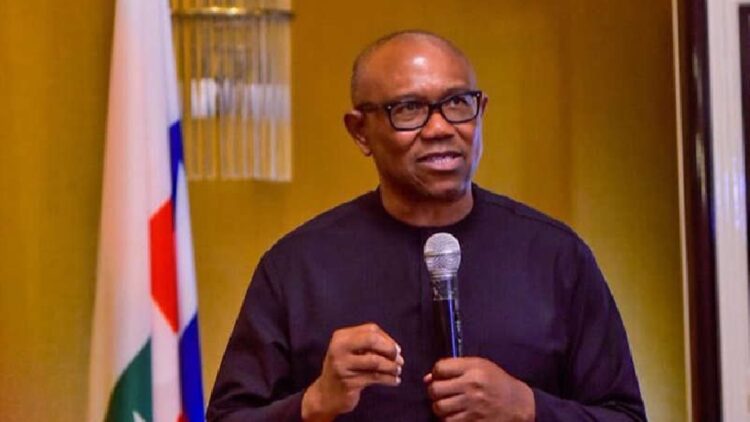The Labour Party (LP) has officially reaffirmed its commitment to Peter Obi as its presidential candidate for the 2027 election, setting the stage for what promises to be a highly competitive race. This endorsement signals the party’s resolve to challenge the ruling All Progressives Congress (APC) and the opposition Peoples Democratic Party (PDP), both of which continue to dominate Nigeria’s political landscape. However, beyond the surface-level excitement surrounding Obi’s candidacy, the LP faces significant internal hurdles that could threaten its cohesion and electoral viability.
The Enduring Appeal of Peter Obi
Peter Obi’s influence in Nigerian politics has grown significantly over the past few years. His 2023 presidential bid, though unsuccessful, was a watershed moment in Nigerian electoral politics. The campaign galvanized millions, particularly young voters and professionals frustrated with the status quo. His message of transparency, economic prudence, and governance reforms resonated deeply, creating a new political consciousness among Nigerians yearning for real change.
LP’s decision to field Obi again in 2027 is both strategic and necessary. The party recognizes that he remains its strongest asset—a figure capable of mobilizing grassroots support and energizing Nigeria’s increasingly disillusioned electorate. His ability to capture public sentiment, particularly among urban youth and middle-class voters, places him in a unique position to challenge the entrenched political establishment.
During a recent interview on Politics Today, LP’s National Publicity Secretary, Abayomi Arabambi, made it clear that Obi remains central to the party’s vision for the future. “Tinubu is not just going to have it easy in 2027. We are coming back with Peter Obi, so they know we mean business,” he asserted. This statement reflects the party’s confidence in Obi’s candidacy, but the real challenge lies in overcoming internal divisions that could undermine LP’s chances.
Internal Struggles and the Kenneth Okonkwo Factor
Despite its public display of unity, the Labour Party is grappling with significant internal challenges. The recent resignation of Kenneth Okonkwo, a former spokesperson for Obi’s 2023 campaign, highlights growing discontent within the party. Okonkwo, a respected actor-turned-politician, cited leadership crises, a lack of internal democracy, and structural inefficiencies as key reasons for his exit.
In his resignation statement, Okonkwo criticized the party’s organizational structure, arguing that its leadership had failed to evolve beyond the 2023 election cycle. He described the LP leadership as “non-existent” due to expired tenures of key executives, raising concerns about the party’s ability to function as a serious opposition force. His departure raises an important question: Can LP maintain its credibility and unity long enough to mount a formidable challenge in 2027?
Arabambi, however, dismissed Okonkwo’s exit as insignificant, even going as far as to call it “good riddance to bad rubbish.” He also alleged that Okonkwo had been working in favor of the ruling APC. Such internal wrangling is not uncommon in Nigerian politics, but it highlights the broader challenge of maintaining ideological and organizational coherence within a rapidly growing opposition movement.
Can LP Overcome Its Challenges Before 2027?
LP’s ability to remain a dominant force in the political arena will depend on its capacity to resolve internal conflicts, strengthen party structures, and sustain the momentum that Obi’s movement generated in 2023. While the party remains popular among a growing base of politically conscious Nigerians, a divided house cannot stand.
The biggest challenge facing LP is its need for stronger institutional mechanisms. Unlike APC and PDP, which have decades of political experience and entrenched networks across the country, LP is still in its formative stages as a national party. The euphoria surrounding Obi’s campaign in 2023 was largely driven by organic social movements rather than a well-structured party system. To win in 2027, LP must transform itself from a protest movement into a structured political institution capable of contesting and winning elections at all levels.
Another critical factor is whether Obi can maintain and expand his support base. While he remains highly popular, Nigerian elections are not won solely on goodwill. They require meticulous political strategy, strong grassroots mobilization, and, crucially, the ability to form alliances with influential stakeholders across different regions. Will Obi and LP be able to bridge political divides, particularly in the North, where the party struggled to gain traction in 2023?
The Road Ahead
As Nigeria moves closer to 2027, the political landscape will continue to shift. The APC-led government will be looking to consolidate power, while the PDP will be seeking to reclaim lost ground. If LP is serious about victory, it must present itself as a credible alternative, not just in rhetoric but in structure, strategy, and execution.
For now, one thing remains certain: Peter Obi is at the heart of LP’s political aspirations. Whether he can successfully navigate the challenges ahead and unite the party behind him will determine not only his fate but also the future of Nigeria’s opposition politics.






































Discussion about this post